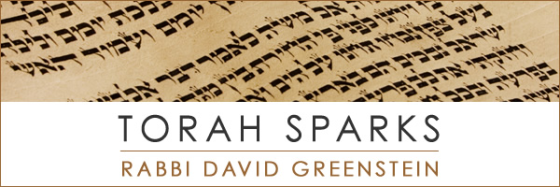Parashat Balaq (5774 – 2014)
Numbers 22:2 – 25:9
Our Torah portion records the many blessings that the Mesopotamian prophet, Bil`am, showers upon the people of Israel, much to his own discomfort and his patron, Balaq’s, rage. This portion has always offered some satisfaction to Israel by telling of a sworn enemy of our people being forced by God to bless, rather than curse us.
In these anguished days, when we are desperate for blessings, we might turn to our Torah portion in hopes of deriving some solace or, perhaps, some guidance.
The very first phrases that Bil`am utters have assumed a significance that overshadows many of his other pronouncements. He begins: “I see him [- the people of Israel] from the top of the craggy rocks, and I look upon him from the heights; indeed, he is a people who dwells alone, not counted among the nations.” (Numbers 23:9) The image of Israel dwelling alone, apart from the nations of the world, has been an image of profound investigation and controversy in our tradition and it continues to frame how we think about ourselves to the present day.
How do we understand the isolation of Israel as a people? In general we do not think of isolation as something positive. Isolation is lonely. It creates diminished opportunities. Who would wish for such a destiny? Yet these words are supposed to be the beginning of a string of blessings granted to our people.
Some have understood Bil`am’s words as referring to some essential uniqueness of the Jewish people. It is undeniable that we have had a unique history. Our survival through millennia of dispersion, oppression and destruction is impossible to explain by the standards of any known historical method. Moreover, our contributions to world civilization have been unique in quality and quantity. Nevertheless, while contemplation of our history should evoke deep feelings of awe and wonder, the idea that this history is the product of some essential difference in “Jewish genes” or “the Jewish soul” or “nature” is, quite simply, a racist idea. There have been many in our history and there are many today who believe in this type of racist superiority of the Jews. But they are no less racist than the cruel enemies throughout our history who have adhered to the idea that we are inferior to other “normal” peoples.
Another, no less toxic, understanding of this verse is to use our aloneness as warrant for doing whatever we please, never taking the opinion of the rest of the world into account. This approach betrays Jewish values of justice and simple good sense. It creates a sense of contempt for the rest of the world that, even if it is not based on false genetic theories, ends up in the same racist place.
And there have been many Jews, especially in recent times, who, in their rejection of these ultra-nationalist approaches, have gone to the opposite extreme and concluded that we should reject Jewish separateness and embrace living within the host nations of our diaspora and, even if we live in Israel, immerse ourselves in world culture. Separateness for them is a curse.
Is there a way by which we can accept our isolation and our separateness as a blessing? Bil`am’s blessings were spoken as he took in the expanse of the Israelite encampment poised to enter the Promised Land. At that point we did, indeed, have a truly unique history. We had experienced the miracles of the Exodus, the splitting of the Red Sea, the revelation at Sinai, and the constant tender care of God’s sheltering Presence during our wandering in the wilderness. But the next step would bring about a radical change in our historical path. The age of miracles would fade away. Instead, it would be up to us to take charge of our choices and forge our destiny.
Our Torah and our continuing tradition set out to help us remember our unique beginnings so that their very uniqueness – their miraculous and unrepeatable quality – might be repeatedly infused into our everyday lives. Bil`am’s blessing is that we should remember the unique history of the Jewish people so that it would have an inspiring ability to call us always to be worthy of that history. Our worthiness is not an inherent quality, guaranteed by our Jewish identities. No, our worthiness is always up for judgment because it always depends on the worthiness of our choices. We are alone, isolated and separate – in our responsibility. We cannot foist upon the nations of the world the blame or the responsibility for what we decide to do. In that sense, too, we are blessed, for we are totally free. We are free, if we wish to do so, to fulfill God’s call to Abraham at the very first moment of our history – “and be a blessing.”
Shabbat Shalom
Rabbi David Greenstein
![]()
Subscribe to Rabbi Greenstein’s weekly d’var Torah
- Toby Stein: In Memoriam - Thu, Feb 8, 2024
- Faithfulness and Hope: Parashat Sh’lach - Thu, Jun 23, 2022
- Past Their Prime: Parashat B’ha`a lot’kha - Thu, Jun 16, 2022

